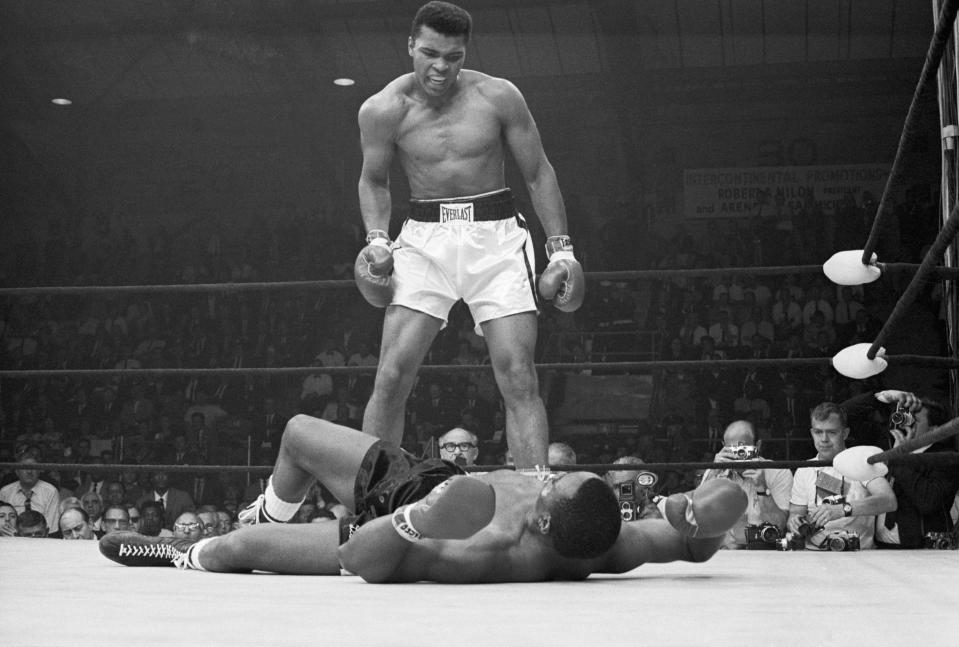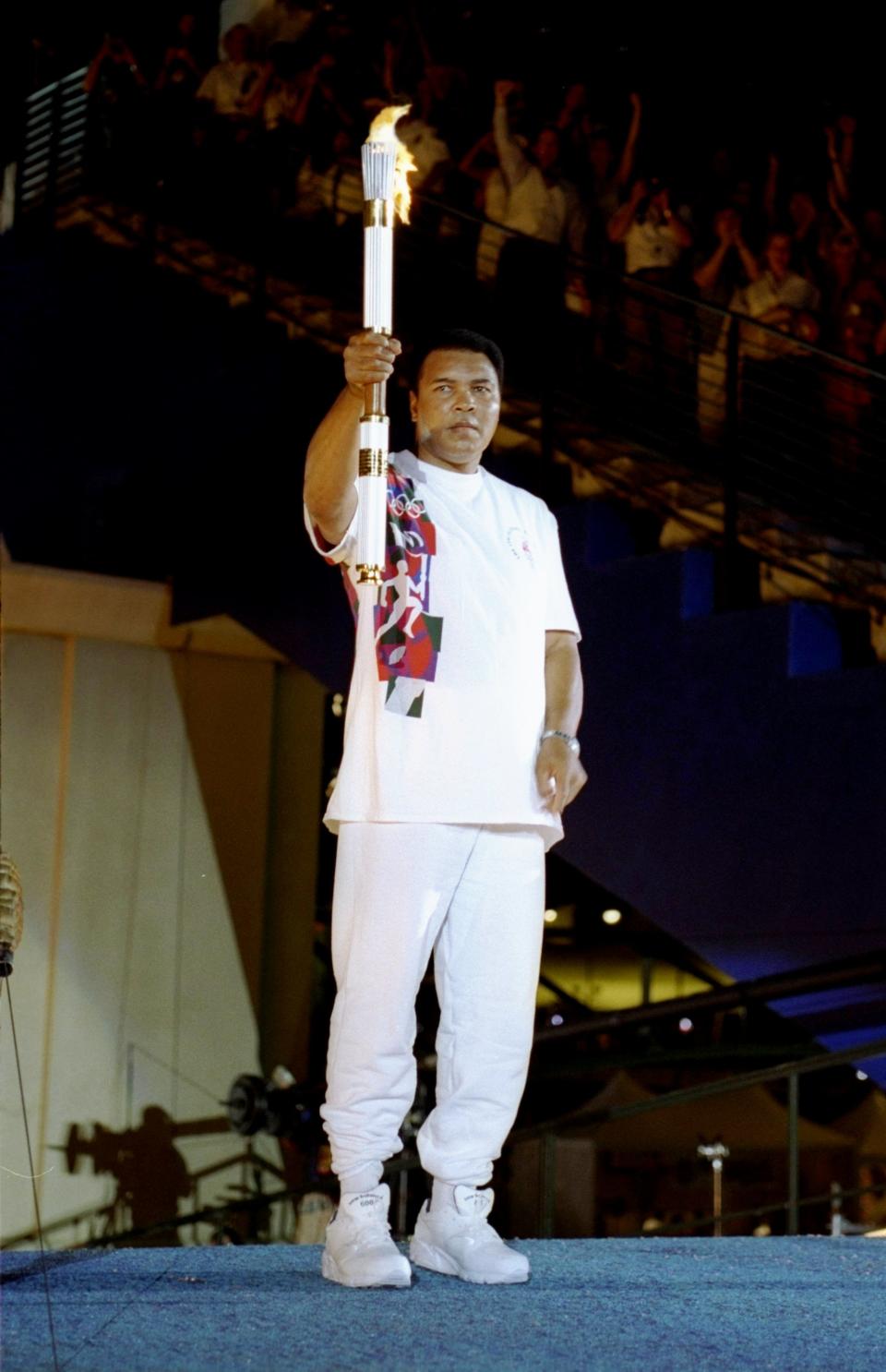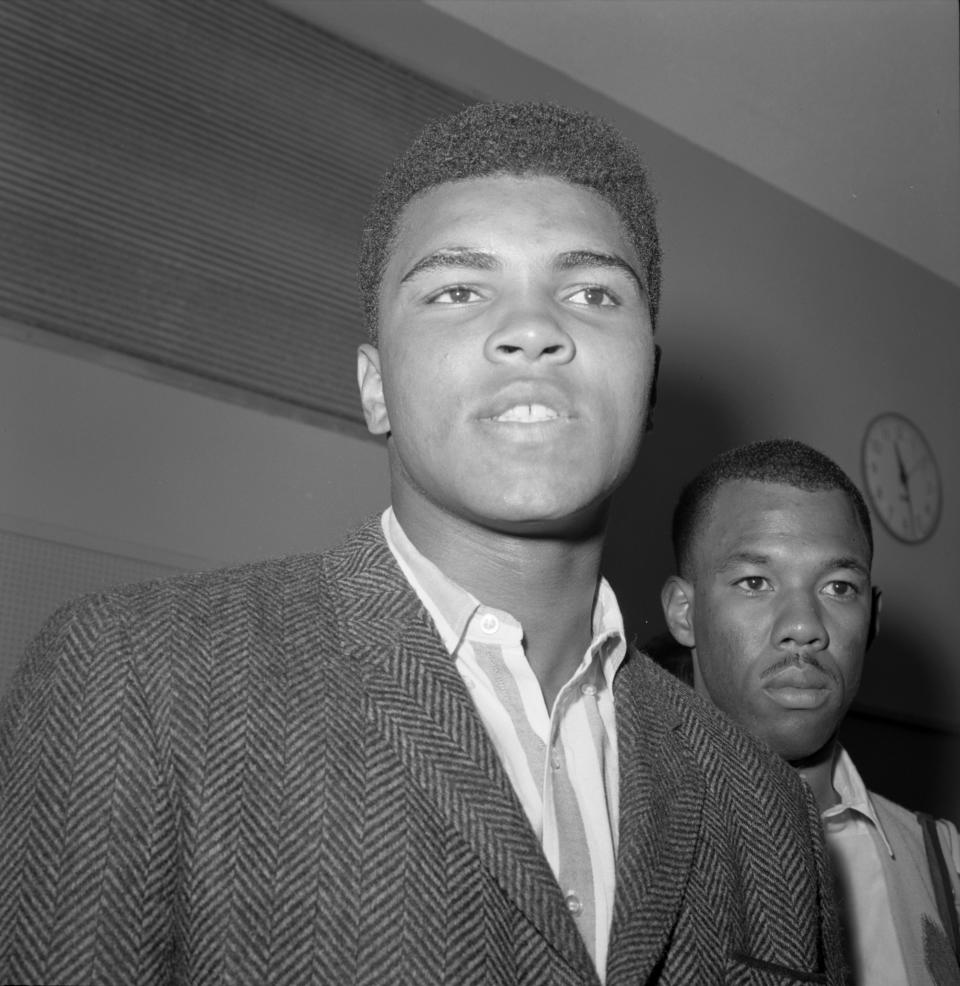From secret meetings to a predawn rehearsal: How Muhammad Ali's greatest surprise came to be
Two years ago on June 3, Muhammad Ali died at the age of 74. In addition to his sporting accolades and well-documented social activism, “the Champ” is the subject of arguably the most famous sports photograph ever snapped: Ali, sneering, standing over a knocked-out Sonny Liston. The image, taken in 1965, has been an inspirational gym adornment for decades. It emanates power, youth, pride, and victory.

But three decades later, another image resonated for reasons both similar and completely different: Ali, shaking from Parkinson’s tremors, holding the Olympic torch aloft during the 1996 Centennial Games in Atlanta. His youthful ferocity has been replaced by a resolute calm. He seems both steady and fragile; unmoving but vulnerable. Millions around the world watching on TV cheered the moment — for all those reasons but also because it was a complete surprise. Not even Bob Costas, NBC’s commentator for the games, knew Ali would be the final torchbearer.

One of the handful of people who did know was the man who orchestrated the event, Don Mischer. Mischer directed the opening ceremony, and he recently spoke to Yahoo Entertainment about the intense secrecy surrounding the iconic moment.
Mischer and Dick Ebersol, who was president of NBC Sports at the time, agreed that Muhammad Ali would be the best final torchbearer — but only if it were a surprise.
“If you know that Muhammad Ali is going to be the last guy to hold the torch, there’s not much emotion with it,” said Mischer.
So they went after Ali, first connecting with his longtime friend and photographer Howard Bingham. But with the world’s eyes on their every move, even preliminary talks were top secret.

Mischer, Ebersol, and three others were the only people in the world that knew about Ali’s potential appearance. And even the slightest gesture could give it all away.
“We knew that if we brought Howard into our production offices … people would connect the dots,” said Mischer.
So they met in the least obvious, most repellant area possible: the Olympic stadium’s garbage room. Mischer recounted their conversation with Bingham, saying, “If the word gets out … we have the right to change and pick someone else.”
Ali was on board, but the hardest part was still ahead: rehearsal. Mischer decided they would completely vacate the stadium, excuse the security staff (to prevent leaks), and rehearse in the dark.
“It was 2:30, 3 in the morning,” Mischer recounted. “Ali came up, he and Howard Bingham, without an entourage, without a fancy car.”
Mischer says despite the obvious effects of Parkinson’s, Ali was “playful” and “fun.” “He does these fake jabs to your stomach,” Mischer recalled.
They used flashlights to guide him up the stairs and went over the torch hand-off. He’d be receiving it from Olympic swimmer Janet Evans — who had no idea whom she’d be giving the torch to.
During the live broadcast, the torch-lighting went off without a hitch, and the crowd roared in surprise and support.
One of those cheering in the audience was the U.S. president, Bill Clinton. In a touching tribute, he recalled the moment during his 2016 eulogy for the boxer, saying, “I was weeping like a baby seeing his hands shake. No matter what it took, the flame would be lit. The fight would be won. I knew it would happen.”
Watch Don Mischer discuss another iconic TV moment:
Read more from Yahoo Entertainment:


